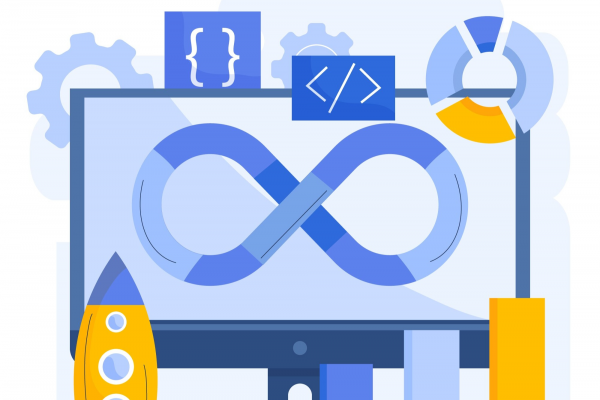In today’s rapidly evolving educational landscape, Artificial Intelligence in Education (AI) is revolutionizing traditional learning systems, offering unprecedented opportunities while presenting significant challenges. As AI continues to integrate into educational platforms, it reshapes how students learn, how teachers instruct, and how institutions operate. While AI’s potential in education is immense, its adoption must be approached strategically to ensure it supports sustainable development goals and delivers lasting positive impacts on society, particularly in developing equitable learning opportunities.
Opportunities of Artificial Intelligence in Education
- Personalized Learning: AI-powered systems are designed to analyze a student’s learning style, pace, and areas of difficulty, allowing for the creation of tailored educational experiences. This ensures that each learner receives content suited to their specific needs, enhancing learning outcomes. Adaptive learning platforms that leverage AI adjust lesson plans in real-time, offering additional resources where required and scaling back when a student is progressing well. This personalized approach enables greater learning efficiency, helping students better retain information and excel academically.
The implications of personalized learning are particularly significant for students with diverse learning styles and abilities. Through AI, educational systems can deliver individualized support, empowering students who may struggle in traditional settings to succeed. By enabling personalized learning at scale, AI contributes to more equitable educational experiences, closing achievement gaps and ensuring that students from all backgrounds receive the attention and resources they need to thrive.
- Enhanced Accessibility: AI is playing a critical role in breaking down barriers for learners with disabilities. AI-driven tools offer real-time speech-to-text transcription, sign language interpretation, translation services, and custom learning environments for students with visual or auditory impairments. These advancements are helping to create inclusive classrooms where all students can participate fully. Moreover, AI technologies can assist in tailoring content for students with cognitive challenges, ensuring they, too, receive the support needed to engage in meaningful learning.
In alignment with the UN’s Sustainable Development Goal (SDG) 4, which aims to ensure inclusive and equitable quality education for all, AI is already contributing by enhancing accessibility. As educational institutions increasingly adopt AI-driven accessibility solutions, it paves the way for a more inclusive future where students of all abilities can learn in an environment that meets their specific needs.
- Automating Administrative Tasks: One of the often-overlooked benefits of AI in education is its ability to automate administrative tasks. Teachers and administrators frequently spend hours on tasks such as grading, scheduling, and managing student records, reducing the time available for direct student engagement and instruction. AI systems can automate grading processes, assess assignments, and even offer feedback based on student performance. This automation frees up educators to focus more on student interaction and personalized teaching.
In addition to grading, AI-powered chatbots and virtual assistants can handle routine administrative queries from students, such as answering questions about assignments, managing reminders for upcoming deadlines, and even handling course enrollment. By streamlining these administrative processes, AI helps improve overall operational efficiency within educational institutions.
In fact, according to Statista, during a global survey of students conducted in mid-2024, 86% of students reported using AI tools in their schoolwork, with nearly 25% using AI on a daily basis. This reflects the growing importance of AI not just in the classroom, but also in streamlining the educational journey for students and teachers alike.
- Data-Driven Insights for Improved Decision-Making: AI systems have the ability to collect and analyze large volumes of educational data, providing valuable insights into student performance, engagement levels, and potential areas for curriculum improvement. For schools and universities, these data-driven insights are crucial for proactive decision-making. AI can help institutions identify trends such as dropout rates, learning gaps, or subject areas where students consistently struggle. This enables educational leaders to make informed decisions about where to allocate resources or adjust teaching strategies.
By leveraging AI to track and analyze student data, educational institutions can ensure that they are continually improving their programs. Moreover, these insights can be shared with educators, enabling them to tailor their teaching strategies based on real-time student feedback.
Challenges of Artificial Intelligence in Education
While AI offers many opportunities, there are several challenges that need to be addressed to ensure its successful implementation in the educational landscape.
- Equity and the Digital Divide: While AI has the potential to improve educational outcomes for many, it can also exacerbate existing inequalities if not implemented thoughtfully. Access to AI-driven education tools often requires reliable internet connectivity, modern devices, and digital literacy—resources that are not available to all students, particularly in underserved regions. Without addressing this digital divide, the benefits of AI could be limited to those with access to technology, further widening educational inequalities.
To combat this, governments and institutions need to invest in the infrastructure and resources necessary to provide equitable access to AI-powered tools. This includes expanding internet connectivity to rural areas, offering affordable or subsidized devices to low-income students, and providing digital literacy training for both students and educators.
- Ethical Concerns and Data Privacy: AI systems rely on vast amounts of data to function effectively, raising significant concerns about data privacy and security. Educational institutions must ensure that student data is protected and used ethically. Strict data governance policies need to be in place to prevent misuse of personal information, and parents and students should be made aware of how their data is being collected, stored, and used.
Additionally, there are ethical concerns related to bias in AI algorithms. If these algorithms are not carefully monitored, they can inadvertently perpetuate existing inequalities in the education system by favoring certain groups of students over others. Ensuring that AI systems are fair, transparent, and unbiased is critical to their success in education.
- Teacher Training and Readiness: AI will not replace teachers, but it will certainly change the role of educators in the classroom. As AI tools become more prevalent, teachers will need to adapt to new technologies and integrate them effectively into their teaching practices. However, many educators may lack the technical skills necessary to fully leverage AI’s capabilities.
Professional development and training programs will be essential to help teachers embrace these new tools. Schools and institutions must invest in training that empowers educators to integrate AI into the classroom while maintaining their critical role as facilitators of learning and student engagement.
- Over-reliance on Technology: While AI offers many benefits, there is a risk of over-relying on technology at the expense of human interaction. Education is not solely about knowledge transfer; it also involves developing critical thinking, creativity, empathy, and social skills—qualities that cannot be fully replicated by AI systems. Schools and educators must ensure that AI is used to complement, not replace, the human element of education.
The Road to Sustainable Development Through AI in Education
For AI to contribute meaningfully to sustainable development in education, collaboration between governments, institutions, and technology providers is essential. AI spending in the education sector is projected to increase significantly. According to Gartner, global AI software spending in the education market is forecast to grow by 17.3% in 2024 to reach $7.7 billion, and it is expected to grow at a five-year CAGR of 18.5%, reaching $13.2 billion by 2027. This highlights the growing commitment to integrating AI into educational frameworks worldwide.
However, to ensure that AI-driven solutions are accessible and inclusive, institutions must design these tools to meet the needs of all learners. This means developing solutions that are affordable, easy to use, and adaptable to different learning environments. When done right, AI can be a powerful tool for advancing sustainable development goals in education, enabling access to quality education for all.
Partner with STL Digital to explore how AI-driven solutions can be integrated into education systems to support sustainable development. STL Digital’s expertise in digital transformation can help institutions leverage AI for enhanced learning experiences and operational efficiency while keeping ethical and accessibility concerns at the forefront. Learn more at STL Digital.



